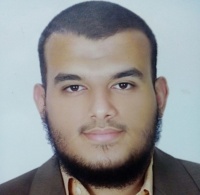Home » Reports » EGY - News » Egypt: Young Egyptian Charity Worker Severely Tortured in Azouli Military Prison Reappears after Middle East Eye Story
On the night of 22 September 2014, Abdelrahman Kamal and his parents were woken up by loud banging on the door. As his father opened the door, several military and police officers stormed in the house and, without showing any warrant or explaining the reason for their presence, shouted Abdelrahman Kamal's name, who, awaken by the noise, presented himself to them. The head officer asked him to bring them to his room while others took his father and went to search the rest of the building. They broke several personal items of the Kamal family, and confiscated Abdelrahman's passport, driving licence, computer and mobile phone before forcibly taking him outside the building where they forced him into an armoured vehicle that left for an unknown location.
Extremely worried and unaware of his whereabouts, his parents solicited the public prosecution's office by telegram and, in the absence of an answer, filed an official complaint for disappearance, to no avail. In fact, the authorities never responded to their different inquiries; it is only thanks to another detainee that they learned that Abdelrahman was detained in the Al Azouli military prison, where prisoners are routinely tortured, and where he was himself subjected to repetitive and particularly severe acts of torture. The detainee testified that Abdelrahman had been electrocuted and burnt as he was hanged by the hands. Because of the violence of the torture, both his arms had broke and the detainee believed that Abdelrahman had died during the resulting surgery, since he had not seen him since.
Extremely concerned by the detainee's statement, the family filed a complaint before the Cairo General Attorney on 23 December 2014 asking him to investigate his alleged death, again to no avail. Two days later, they received an anonymous call telling them that Abdelrahman Kamal was alive and detained in the Tora prison.
When they were finally authorised to visit him on 19 January 2015, after not having seen their son for four months, Adbelrahman's parents had to wait for 12 hours inside the prison before being authorised to see him for only 10 minutes. Abdelrahman then confirmed that he had been tortured and charged, on 27 December 2014, with "being affiliated to a terrorist organisation," an accusation that he has strongly denied and is supported by his family who claims that "he could not have had anything to do with it." Abdelrahman is indeed better known for his involvement in a charity organisation, Resala which helps vulnerable people, including orphans. His cousin added that "it is only because a newspaper [the Middle East Eye] wrote about his alleged death that he reappeared." Abdelrahman remains detained to date and his family has not been authorised to see him since 19 January.
In the absence of response from the local authorities to their numerous complaints, the Kamal family turned to Alkarama to address the UN Special Procedures on human rights, in particular the Special Rapporteur on Torture (SRT) to ask the authorities to guarantee Abdelrahman's physical and mental health and authorise his family to visit him regularly; to grant him his fundamental right to see a lawyer; and to release him if no material evidence was brought to prove the accusations held against him. Furthermore, the authorities should duly investigate the reports of torture made by the victim and prosecute those responsible.
The Egyptian authorities have to put an end to the arbitrary detention of citizens by the security services, take effective steps to abolish the widespread practice of torture, and ensure accountability as urged by the UN High Commissioner for Human Rights who underlined that "long-term stability [...] is only possible if fundamental human rights are respected."
For more information or an interview, please contact the media team at This email address is being protected from spambots. You need JavaScript enabled to view it. (Dir: +41 22 734 1007 Ext: 810)
 Algeria
Algeria Bahrain
Bahrain Djibouti
Djibouti Egypt
Egypt Iraq
Iraq Palestine/Israel
Palestine/Israel Jordan
Jordan Kuwait
Kuwait Lebanon
Lebanon Libya
Libya Mauritania
Mauritania Morocco
Morocco Oman
Oman Qatar
Qatar Saudi Arabia
Saudi Arabia Sudan
Sudan Syria
Syria Tunisia
Tunisia United Arab Emirates
United Arab Emirates Yemen
Yemen Other Countries
Other Countries







